At this year’s Edinburgh Fringe, I came across a wonderful solo show at Gilded Balloon Patter House ‘Grandma’s Shop’. Written and performed by Julie Flower, it was staged in the intimate Snug venue and offered a truly delightful and personal insight into the actor’s grandmother Hilda Flower who was a local legend in 1980s Sheffield. Told through the medium of part-fictional and part-verbatim theatre, Julie takes audiences on a journey back in time to her childhood helping out in the shop, drawing on memories and personal experiences.
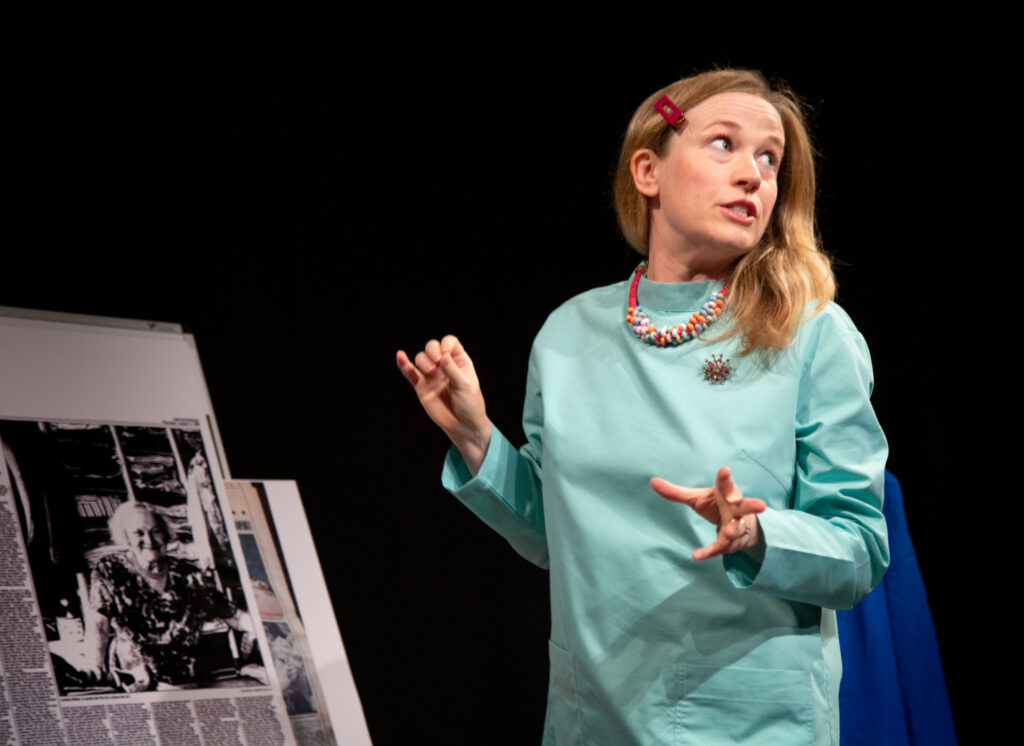
When I heard that the play was part of the programme for the 2024 Faversham Fringe, I reached out to Julie to see if she would answer some of my questions about the creative process and also provide local Kent audiences with an opportunity to hear more about the inspiration for the one-person show. In my Edinburgh review I described the material as a ‘nostalgic reflection on everyday life in Sheffield in the post-punk era’ and personally thought that the work ‘radiated joy’. I hope audiences love the show as much as I did, but there is no better person to tell you about the production than Julie herself, so without further ado, let’s find out more about the amazing Hilda Flower and her local shop.
‘Grandma’s Shop’ centres on Sheffield-based shopkeeper Hilda Flower. What inspired you to write a play about your grandmother?
My grandma had a very strong influence on me as I used to help her out in her shop (a second-hand clothes shop) every Saturday morning, when I was growing up. The real inspiration to write about her came when my brother rediscovered an article about my grandma that had appeared in The Guardian in 1989, exploring her shop and her eccentricity. I’d been thinking about trying my hand at writing a solo theatre show for a while and, in that moment, I knew I had my subject! An ‘ordinary’, yet extraordinary shopkeeper.
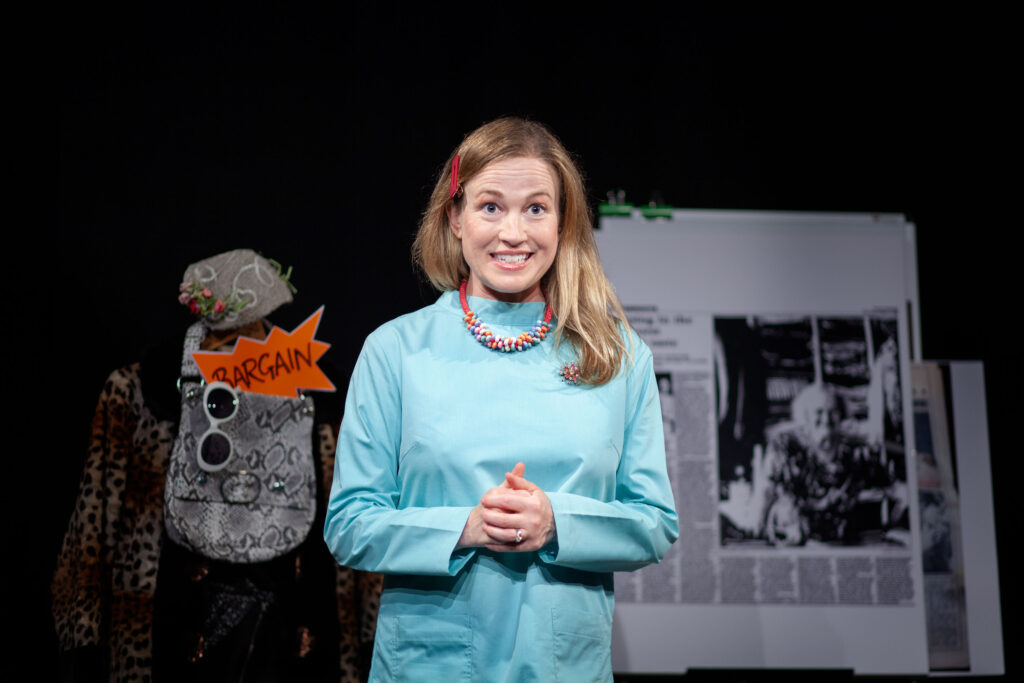
The 1980s must have been such a dynamic time in the city. What can you tell me about growing up in post-punk Sheffield?
As a child, much of the political side of life passed me by, but Sheffield Council was renowned for being very left-wing. A great benefit of that was that bus fares were the lowest in the country: 2p a ride at one point in the 80s! Of course, there was a lot of creativity and activism alongside (or perhaps because of) high unemployment and the decline of traditional industries and skills. I was too young in the 80s to be aware of the thriving music scene but I think there was a real pride in Sheffield about some of the bands coming out of the city. The notion of ‘made in Sheffield’ was morphing into something new.
To what extent have you drawn on real-life experiences in creating this nostalgic piece of theatre?
In two words – very heavily. I probed my own memory and then sat down with my brother, my dad and a woman who used to sometimes help Grandma in the shop to gather theirs. Unusually for this kind of biographical piece, I also had and discovered a number of newspaper articles, and was able to trace memories from people who remembered visiting the shop. I would describe the piece as a patchwork quilt of dramatised childhood memories, present-day discoveries and imagined interactions with customers, based directly on the evidence we have.
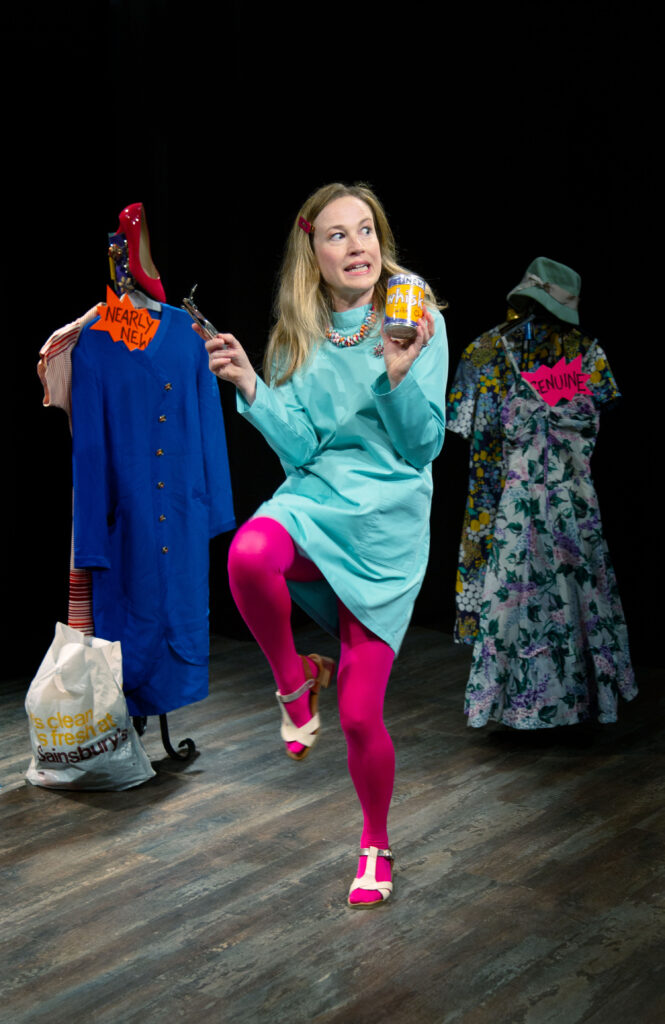
In my Edinburgh Fringe review, I described your storytelling as “fun and cheeky”. How did you find revisiting your childhood memories for the script and playing your younger, inquisitive self?
I loved it! I’m also an improviser and I love exploring stories from different perspectives and playing different characters. As an adult, it isn’t always easy to put yourself in the shoes of a child and to be so playful. Working with Sarah Chew, my fantastic dramaturg/director, really helped me to capture that sense of wonderment and the accepting way in which children often see the world. It’s actually quite a lesson in acceptance to do that. It also meant that I could playfully and respectfully explore some of the more eccentric elements of my grandma’s character and family dynamics.
How did you go about recreating the shop through the set design?
I was keen to include as many vintage clothes and props as possible as I knew the audience would relate to them, and I wanted the show to feel quite immersive. I was also conscious of the constraints of Fringe venues – very little storage and short ‘turnaround times’. I decided to begin the design by thinking about the four imagined character transformations that occur for the customers featured in the show, creating mannequin-like figures styled with outfits from different eras. I was able to find most of the clothes and props from things I’d kept from the shop – it was great fun to pull them together – but I did have to search for some others. Specifically, 80s carrier bags from major shops – there is a brisk trade on eBay. I ended up drawing the line at using real mothballs as they really do smell unpleasant!
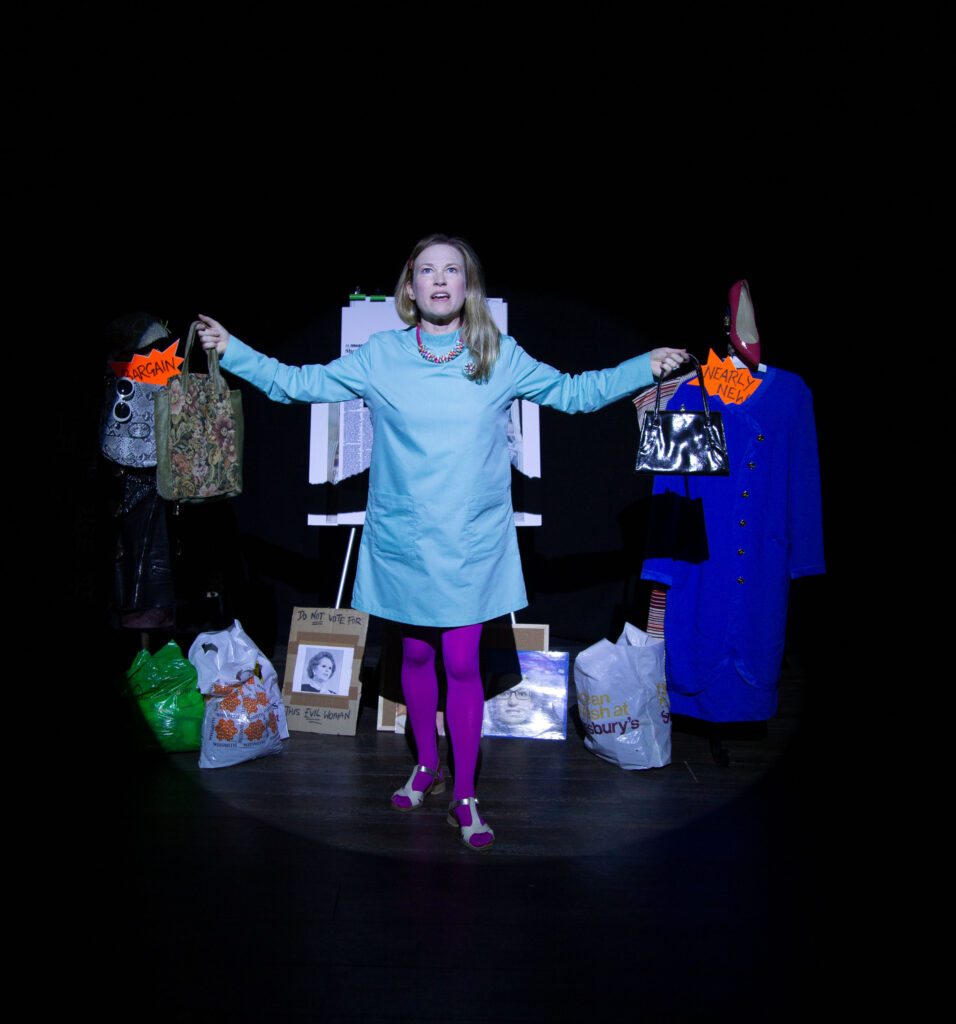
You are bringing the personal, one-woman show to the Faversham Fringe this October as part of a wider tour. Have you made any changes to the script since returning from Edinburgh?
I haven’t made any changes to the script since Edinburgh as I tweaked quite a bit in the run-up, following previews in Brighton, Tunbridge Wells and London. But there are a couple of lines I think I might remove as they seemed surplus to requirements. The delivery is also always subtly changing and developing, based on audience reactions.
What do you hope audiences take away from the play?
One of the reviews at Edinburgh Fringe said that ‘you will leave bathed in the warm glow of humanity at its best.’ I genuinely hope that’s the case, but not in a twee way. We’re talking about humanity in all its wonderful messiness and complexity, laid bare through the life of a shopkeeper and the cast of characters who inhabited her world. Many audience members have also been touched by the family history element of the show and have been keen to share their research and memories with me. So, in three words: nostalgia, humanity, remembrance.
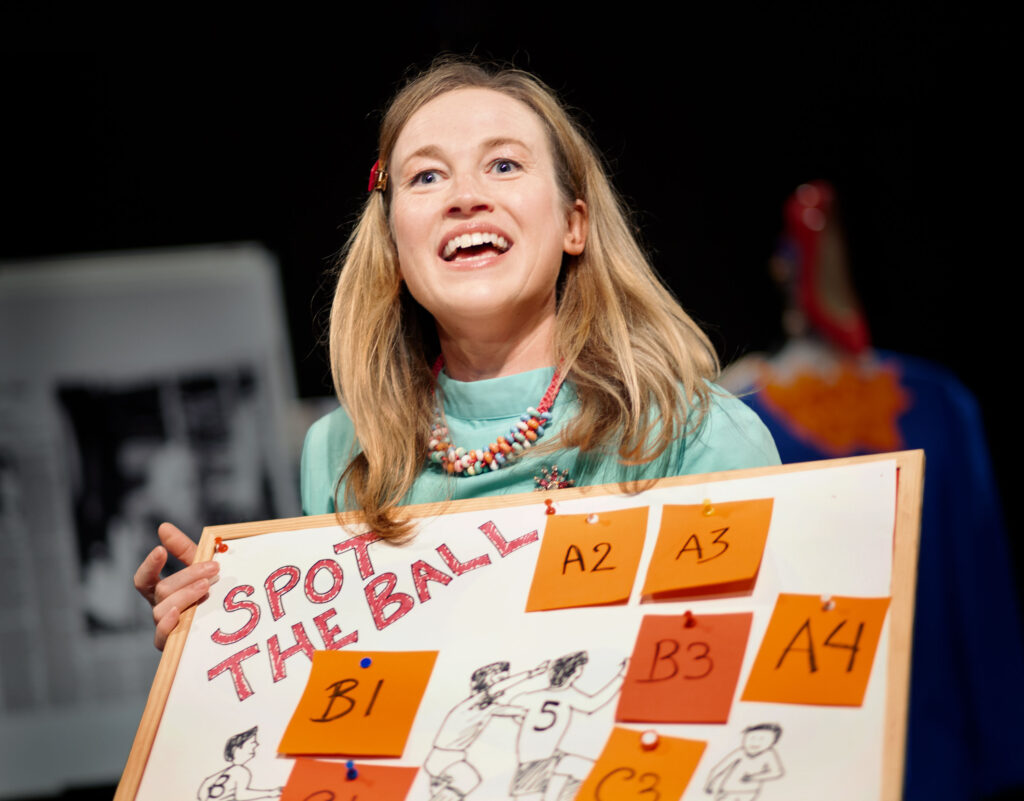
You are taking the show home to Sheffield in November. How do you feel about performing the material in the city which inspired it all?
Excited but also strangely nervous. I’ll need to tweak a couple of points where I explain Sheffield-specific things to the audience, as they should already know. And, I know this sounds ridiculous, but I hope my accents are okay. I do a few Sheffield accents, including mine as a child. I have never had a strong Sheffield accent, but today it has all-but-disappeared (apart from my flat vowels) over many years of living in Kent, so I hope I do the accent justice. I don’t want to feel like an imposter in my own city!
A taste of post-punk Sheffield in Kent
From the vibrant set design to the performer’s ability to recreate lots of charismatic characters, ‘Julie Flower: Grandma’s Shop’ is such an exciting addition to the Faversham Fringe programme. You can catch the play at the Arden Theatre in Faversham on Saturday 5th October. The performance starts at 1pm and tickets can be purchased via the festival website. Head to the ‘Grandma’s Shop’ website to find out when the show will be performed in Sheffield. It is wonderful that the piece will finally premiere in the city where it all started in the not-so-distant future. A huge thank you to Julie Flower for taking the time to chat to me about the show’s post-Edinburgh Fringe journey.
Thanks for reading my blog today.
Love Kat xxxx

Comments